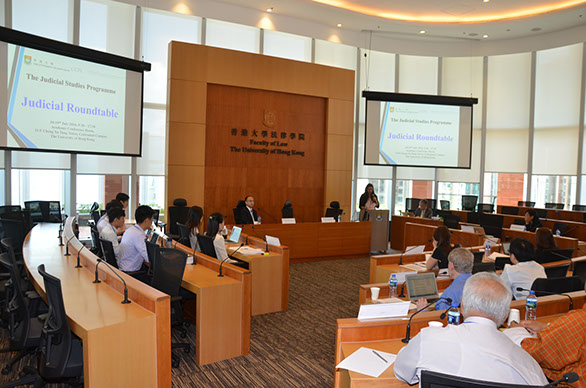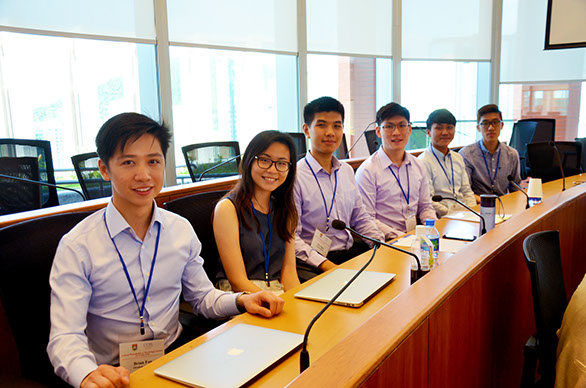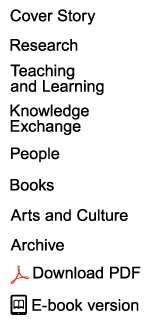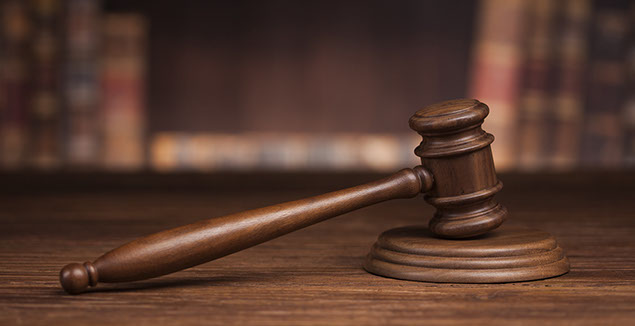
Preparing Judges For The 21St Century
Judges today are expected to make decisions in cases giving rise to a whole swathe of emerging issues, from environmental protection and new technology to anti-terrorism and cross-border integration. How can they be expected to deal with such matters when their own prior experiences may have been limited to different, more traditional areas of the law? HKU has started to address that concern through its Judicial Studies Programme.
Professor Anselmo Reyes served as a High Court judge for nine years before joining HKU in 2012, after 14 years as a barrister. He is also a sitting judge of the Singapore International Commercial Court. These experiences have all given him an empathy for the challenges facing judges today – and a concern for where judiciaries, especially in Asia, are heading.
“The demands on today’s judiciaries are such that one cannot expect judges, even those who had extensive legal practice before being appointed judges, to be able to deal with the whole range of cases that are likely to come before the courts,” he said.
“Even in civil law jurisdictions, where judges receive training as they advance up the judicial ladder, judges will handle increasingly complicated cases and will likely handle cases with an international or global element. Where is the guarantee that a judge has the experience and capacity to decide such cases with sensitivity and perception? It is not a good idea for judges to learn new law at the expense of litigants.”
That insight inspired the Faculty of Law to found the Judicial Studies Programme (JSP) in 2013. The JSP aims to help build capacity among judges in Asia and elsewhere to deal with the complexities of contemporary life, and to provide workshops and public talks on matters pertaining to the judiciary and what judges do.
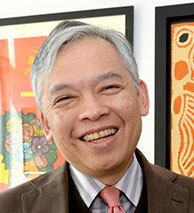
![]() Judges need to be knowledgeable about issues affecting people’s daily lives in order that the competing demands of our global society can be properly reflected in and can inform their decisions.
Judges need to be knowledgeable about issues affecting people’s daily lives in order that the competing demands of our global society can be properly reflected in and can inform their decisions. ![]()
Professor Anselmo Reyes
First Judicial Roundtable
Last summer the JSP organised its first Judicial Roundtable, modelled on an annual conference for top constitutional lawyers at Yale University. Some 10 judges from various jurisdictions (including Hong Kong, Mainland China, Thailand, Myanmar, Bhutan, Singapore, the Philippines, Sri Lanka and Mongolia) met to discuss four issues pertinent to Asia: environmental law, money laundering, national security (including anti-terrorism), and cross-boundary evidentiary issues.
The group was kept purposely small to encourage frank discussions. HKU Law professors led the discussions, while top students prepared briefing notes for each session and provided logistical assistance during the sessions. Visiting professors also participated in the discussions.
Apart from encouraging dialogue among judges from Asian jurisdictions, Professor Reyes said this was a good chance to showcase the talent within HKU’s Law Faculty and to motivate HKU academics and students to engage in practical research. It was also an opportunity for them to speak with judges and learn more about their everyday needs and concerns.
In addition to the Roundtable, the JSP also organises talks to enable the public to better understand the work of the judiciary. “People have misconceptions of what judges are and what they do. Judges should be somewhat removed from daily life, in the sense of being detached from cases in order that they can give impartial judgement. But judges also need to be knowledgeable about issues affecting people’s daily lives in order that the competing demands of our global society can be properly reflected in and can inform their decisions,” he said.
Bridging the gap
A talk by the Honourable Justice Matthew Palmer of the New Zealand judiciary organised at HKU by the JSP in December, 2016 touched on this issue. Justice Palmer discussed the thesis advanced by Judge Richard Posner in the book Divergent Paths: The Academy and the Judiciary that there is a disconnect between legal academic discourse and the work of judges. “We are trying through the JSP to bridge whatever gap there may be between what academics and judges do,” Professor Reyes said.
Looking ahead, the second Judicial Roundtable is planned for later this year and it is hoped this will become an annual event, subject to funding.
Professor Reyes also hopes to develop interdisciplinary workshops for judges by tapping into the expertise in the Law Faculty on such contemporary issues as ecology and cybersecurity. Eventually, it is hoped that a Judicial Studies Centre can be established.
“This is a trend not just in Hong Kong but elsewhere. Many jurisdictions are developing judicial studies programmes and we can try to assist by designing bespoke capacity-building packages, especially for developing countries in Asia. That’s the long-term vision,” he said. “We want to assist in the effort currently underway in many Asian jurisdictions to get the best judiciary that people can have to meet the difficult challenges of the 21st century.”
There is possibly a more personal goal as well. “Judges tend to feel lonely and misunderstood nowadays. This is in some way an underlying theme behind this work. The message of support that the JSP would like to send out to judges is ‘you are not alone’,” he said.
Back
Chief Justice of Canada the Right Honourable Beverley McLachlin was invited to give a lecture on ‘Equality and the Law: A Canadian Journey’.
The Judicial Studies Programme organised its first Judicial Roundtable in July, 2016.
Students assisting in the first Judicial Roundtable.

